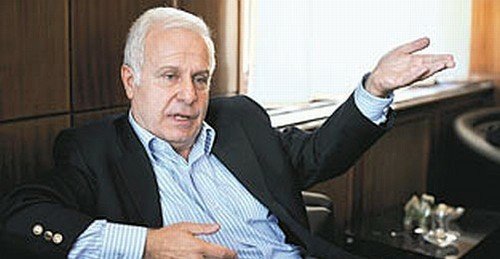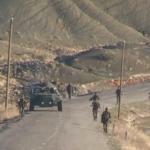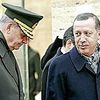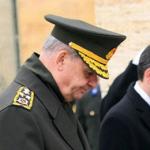In recent days, allegations against the Turkish Armed Forces have emerged. The daily Taraf newspaper published the account of a source who said that there had been a recent action plan by the army to defame the ruling Justice and Development Party (AKP) and Fethullah Gülen, a prominent leader of a religious movement in Turkey, currently living in the USA.
Recent plans
According to Taraf, the plan was made in January 2009, and reports on the issue were prepared in February and March
Documents pertaining to the plans were allegedly seized in the house of retired lieutenant Serdar Öztürk when his home was searched as part of the investigation into the ultranationalist clandestine Ergenekon organisation.
According to the Anadolu Agency (AA), the military prosecution has claimed that the documents found at Öztürk's home were not prepared by any unit of the General Staff. A statement making that point was published on the website of the General Staff, saying, "The Turkish Armed Forces, as has been expressed before, does not harbour personnel with behaviour and ideas that violate democracy, law and state principles."
Chief of Staff allegedly knew of plans
However, in today's (15 June) issue of the newspaper, it cited a "general who could have become Chief of General Staff but is retiring" as saying that he warned current Chief of Staff İlker Başbuğ about plans against the AKP and Gülen, and that Başbuğ had said that he would not allow it.
Following the publication of articles in Taraf newspaper on 12 June, a military court decreed a publishing and broadcasting ban. The newspaper has objected to the ban, saying that a military court was not authorised to decree a ban, and that it violated Article 10 of the European Convention on Human Rights.
Prime Minister Erdoğan has expressed his outrage and announced a possible criminal complaint.
Kardaş: "Army is not transparent"
Meanwhile, retired military judge Ümit Kardaş has criticised the General Staff for entrusting the investigation into the allegations to the military prosecution: "What can a military judiciary, which is neither independent nor neutral, find out?"
Expressing his pessimism at the military prosecution presenting the facts, he reminded bianet that allegations of neglect on behalf of the army in the Dağlıca and Aktütün attacks had been dealt with by rejecting criticism and accusations.
"Turkey's primary problem is that the Turkish Armed Forces, the police force and the gendarmerie are not transparent and do not have to give account. Never mind transparency, we cannot prevent activities targeting the regime, democracy and the rule of law, we cannot organise the judiciary to deal with that and we cannot find the truth. The Prime Minister says he will go to court; I do not understand how he will do that. Who has told him that he has been allowed to go to court?"
"Independent military judiciary impossible"
There has been criticism of Turkey's two-headed judiciary system, with military and civilian courts, for years. Kardaş pointed out that for years soldiers have been tried in military court for violations of the Turkish Penal Code, no matter how serious the violation.
This included the accusation of "attempting to overturn constitutional order" or "overthrowing the government".
The retired judge further questioned the independence of military judges:
"They carry out their duty in military uniform, and their commanders have influence over their records and transfers. There is no independent and neutral judiciary." (EÖ/AG)



















